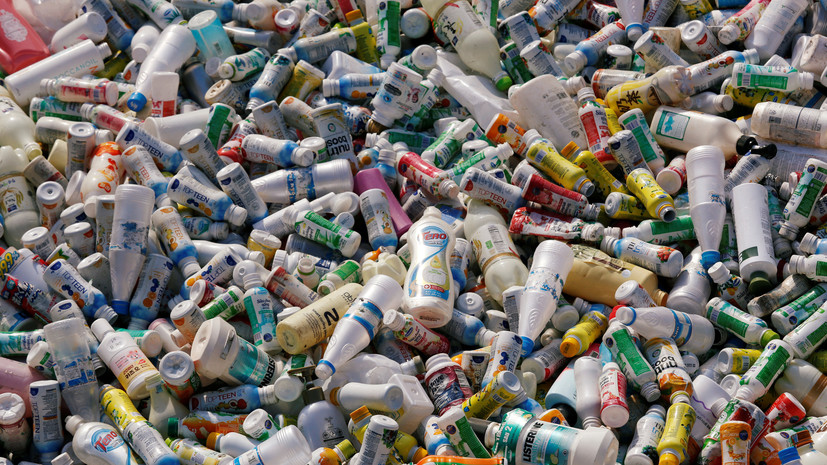“The biggest problem with plastic is that it takes a long time to decompose - or rather, it doesn't decompose at all.
Plastic decomposes into microplastic particles, and they, in turn, are terrible because they cannot be filtered, ”Rybalchenko said.
As an example, he cited an ordinary bag thrown on the street, which over time loses its shape and supposedly decomposes.
“However, nothing really happens to him.
Small pieces of plastic lose their connection with each other, falling into the soil, streams, and so on ... This microplastic is subsequently included in the food chains of animals, ends up in the building material of plants, it is even found in bottles with drinking water, ”the expert explained.
Another problem, according to the specialist, is that plastic packaging makes up about 80% of the waste in a classic waste container.
“Does this mean that plastic should be banned altogether?
Of course not.
In an amicable way, plastic is perfectly processed, from rough processing - into building materials, and ending with the processing of plastic into new marketable products.
But there are types of plastics that cannot be recycled ... A number of plastics should definitely be banned, and only those types that can be processed should be produced, ”Rybalchenko added.
Also, in his opinion, there is currently a need to stimulate the Russian industry to start creating the latest bioplastics.
In addition, it would be reasonable to have in circulation several types of plastics, "for each of which it is clear how to recycle them - it is much more technological and convenient," the specialist believes.
“The most important thing is to under no circumstances allow the plastics to be burned, otherwise we will all have to breathe dioxins and furans from pipes,” Rybalchenko concluded.
Earlier, Russian Deputy Prime Minister Victoria Abramchenko announced the preparation of amendments to the legislation prohibiting the use of non-recyclable and hard-to-recover materials.

